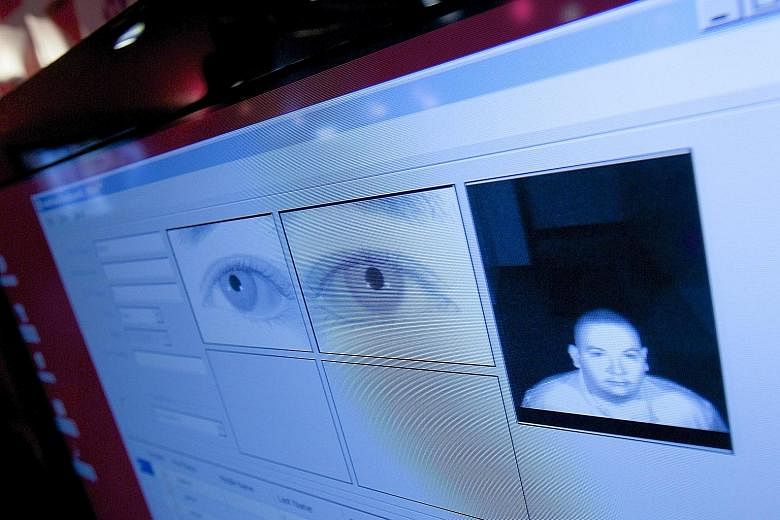Singaporeans and permanent residents will soon be able to have their eyes scanned at checkpoints here to verify their identity, Senior Minister of State for Home Affairs Desmond Lee told Parliament yesterday.
The Immigration and Checkpoints Authority (ICA) plans to start collecting iris images from people for this purpose from next year, to prepare for the roll-out of iris scanning technology at land, air and sea checkpoints within the next two years. Mr Lee announced the move during the debate on changes to the National Registration Act, which the House passed yesterday.
The amendments will allow the ICA to collect more forms of personal identification data besides photographs and fingerprints, but not body samples, such as blood samples, through invasive means.
Mr Lee said ICA had received feedback from people who had problems using automated clearance gates at checkpoints because of their fingerprints. The use of iris scanning technology will give them another way to verify their identity, he said, adding that iris images are more permanent than fingerprints which can wear out over time.
"The end result is more efficient and effective immigration clearance at our checkpoints," he said.
Such technology has been used in the Netherlands and Germany since the early 2000s, while the United Arab Emirates has mandated the collection of iris images from all citizens since 2013, said Mr Lee.
Here, iris images will be collected when people register or re-register for an identity card or apply for or renew their passport, and they will not need to make a separate trip to the ICA, he said.
The ICA is also looking at having people re-register for their IC one more time, after the re-registration required now when people turn 30.
Another change to the Act will set limits on the types of names people can register. Names will be refused if they are deemed to be offensive, such as with an obscenity; confusing, such as "Professor" or "Sir"; or too long, exceeding 66 characters.
ICA officers will also be given the powers to investigate offences, such as when people use forged identity cards. Such cases were previously handled by police.
Mr Melvin Yong (Tanjong Pagar GRC), Mr Louis Ng (Nee Soon GRC) and Mr Patrick Tay (West Coast GRC) raised concerns that identity data collected could be stolen and misused.
In response, Mr Lee said sensitive data like fingerprint and iris images are encrypted before storage in a secure database. He added that ICA has strict user access controls and its servers are protected in line with international security standards.
Non-Constituency MP Leon Perera asked if the ICA would consider replacing destroyed or lost ICs for free for low-income Singaporeans. He said the high cost of replacing a lost card - $100 for the first loss and $300 after that - could deter them from replacing lost ICs, making it hard for them to seek support.
Mr Lee said the ICA will consider waiving some or all of the fee based on the circumstances and the reason for the loss of the card.


